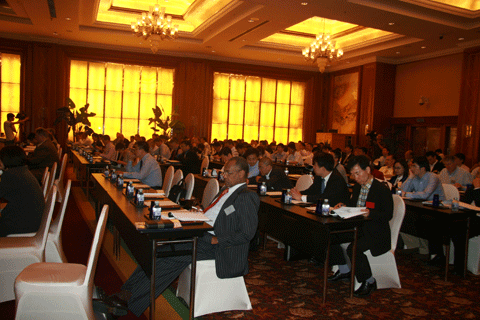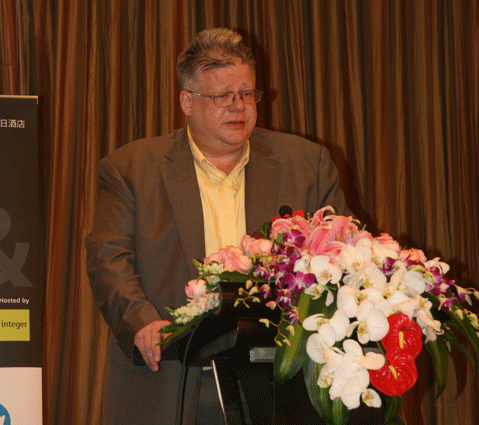The 2009 Asian Diesel Engine Emissions Forum and the ADBLUE Forum hosted by Integer came to a successful conclusion on May 13 at Crowne Plaza Wuzhou Beijing.

Today, the promotion of environmental protection and green technology, the current diesel forum attracted the attention of people in the industry. Iveco China General Manager Wan Ruyi, Peter Karak, Technical Director of SAIC Iveco Hongyan, Sophie Ponte, Executive Director of Active Air Purification Asia, Fang Maodong, Secretary General of the Motor Vehicle Pollution Control Committee, and Vehicle Emission Management of Beijing Municipal Environmental Protection Bureau Director Li Kunsheng and others attended the forum.

Iveco China General Manager Wan Ruyi
The forum mainly revolves around the global economic outlook and the development of Asian diesel vehicle emissions industry, the latest emission regulations and legislation in Asia and other regions, the challenges and opportunities of Asian fuel quality, the assessment of advanced emission technologies, post-processing technologies and diesel vehicle conversion. Discussions on issues such as opportunities brought by technology. Wan Weiyi, general manager of Iveco China, said to reporters: This forum provides a good platform for domestic emissions status and diesel engine technology exchanges and strengthens international exchanges and cooperation.
Domestic emissions history and outlook
In the exchange, Secretary-General Fang Maodong made a brief review of China's emission control process for motor vehicles, and pointed out that China has initially established a vehicle emission standard system, and the overall goal of establishing automobiles and motorcycles in line with international standards. At present, there is a gap of about five years between China and Europe in the emission standards of motor vehicles; and emission control of agricultural machinery and construction machinery has only just begun. As the number of motor vehicles continues to grow, the pressure on environmental protection in major cities continues to increase. Beijing, Shanghai, Guangdong and other developed regions will speed up international convergence, and will usually implement national standards for motor vehicle emissions in advance. China still lags behind the international automotive emissions control requirements for vehicle fuel, maintenance and other ancillary facilities and management. In addition, whether the quality of oil products can guarantee China is a severe test.
Li Kunsheng, director of the Vehicle Emissions Management Division of the Beijing Municipal Environmental Protection Bureau, also revealed that the implementation time of various testing items for automobile emissions will be determined based on China's national conditions. With regard to the implementation of State IV, the government also encourages everyone to actively and rationally make suggestions.
Debate over EGR and SCR technology
As the implementation of the National IV emission standard is approaching, the promotion of emission upgrading has become an important issue in the development of China's automobile technology. The discussion of the EGR and SCR post-processing technologies has also become a focus of this forum. Foreign companies have rich technology reserves for both technologies, and many companies have conducted in-depth research on these two technical routes and are fully prepared.
Peter Karak, Technical Director of SAIC-Iveco Red Rock, analyzed the characteristics of EGR and SCR technology from both technical and market perspectives. He mentioned that EGR utilizes the recirculation of cooled exhaust gas, and SCR technology is the reduction of selective catalytic extrusion. Each of these two technologies has its own advantages. At the same time, he also emphasized that the disadvantage of EGR technology in terms of market adaptability is that the cost is too high, and the core problem of SCR lies in the distribution of urea.
For Chinese companies, on the one hand, we must borrow internationally advanced technologies, and on the other hand, we must make the right choices for the technology line in light of China's specific national conditions. Otherwise, we will directly determine the future survival of enterprises.